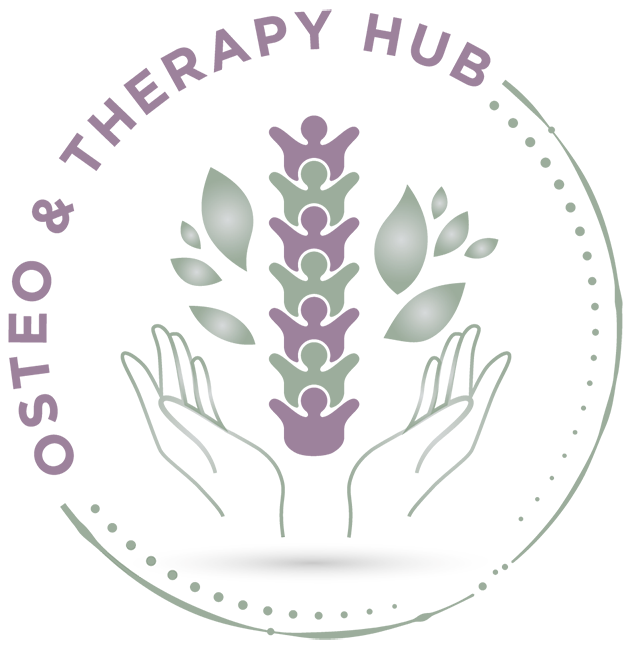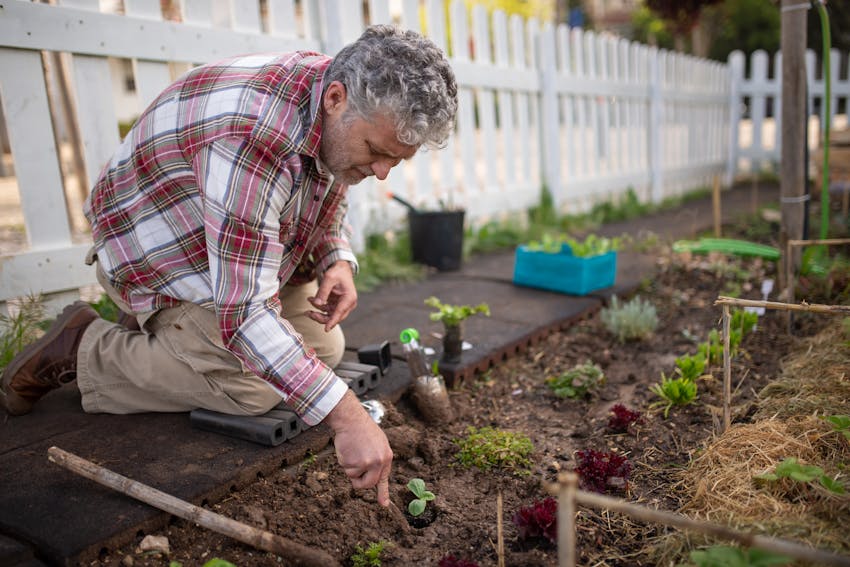Taking the back pain out of gardening. A Chislehurst perspective.
Ensuring pain free gardening
Over the the recent Bank holiday weekends many of our Chislehurst and Sidcup residents have been in the garden, preparing the soil for new plants, digging, weeding, cutting grass, clearing up after the winter and making the most of the extra time off to get on top of the many jobs required to get their gardens summer ready. This has meant more visits to the Osteo & Therapy Hub at Frogpool Manor Farm, Chislehurst to help resolve some aches and pains as a result of their hardwork.
Over 80% of the population experience back pain at some point in their life. In a Gallup poll of 2000 people found that 47% of those reporting back pain felt that gardening was the cause of their pain. This rose to 56% in those people over the age of 35.
With the right preparation, gardening shouldn’t be a pain, however, in the spring when the ground is wet it can be challenging for those who haven’t been as active over the winter. Like sports people at the start of their playing season your body is out of condition, and it reacts to the change in activity.
For some people gardening is a passion, for others (like me) it is a chore that gets put off until it has to be done. However, the satisfaction and sense of wellbeing at the end of a hard day doesn’t just come from looking at a tidy garden, but also from having spent time outside engaging in physical activity. There are many health benefits that come from gardening.
Health Benefits of Gardening
Did you know an hour’s gardening burns the following calories?
- Clearing the winter debris – 400kcal
- Mowing the lawn 250-350kcal
- Planting flowers 200-400kcal
- Weeding – 200-400kcal
Research from Harvard www.health.harvard.edu/diet-and-weight-loss/calories-burned-in-30-minutes-for-people-of-three-different-weights Mar 2021.
Physical benefits of gardening
Strengthens your muscles:
- Gardening requires you to use your body in many different ways stretching joints and engaging muscles often underused if you have a sedentary job.
- That’s why you can feel achy for a couple days after a big gardening session.
Lowers your stress hormone levels:
- Leading to better sleep and improved mental health.
Strengthens your heart:
- Through the physical activity your heart will also get a workout.
- Helps to lower your blood pressure.
Strengthens your immune system:
- Exposure to the bacteria in the soil encourages your immune system develop effective responses to them.
- Vitamin D exposure helps to manage the immune system response reducing susceptibility to infection, as well as playing a role in the uptake of calcium and the strengthening of bones.
Mental health benefits of gardening:
- Reduces anxiety and depression.
- Gardening 2-3 times a week had the maximum benefit on wellbeing scores.Why garden? – Attitudes and the perceived health benefits of home gardening, May 2021.
- Contact with nature has a positive effect on those with high levels of stress, through exposure to relaxing natural stimuli triggering the parasympathetic nervous system which manages relaxation and wellbeing WHO Urban Green Spaces and Health 2016.
Spring Gardening Tips
To help you take the pain out of gardening follow these tips to ensure your body is ready and you are less likely to struggle after completing the tasks.
Stretch out before you start:
- the exercises I recommended in my autumn gardening blog still apply here, just swap leaf clearing for digging or mowing the lawn.
Choose the right tools for the job:
- a suitable surface that is the right height for you for potting out those seedlings, or new plants.
- a sturdy stool or step ladder for cutting back those hard-to-reach plants.
Make sure you use the right posture for the task in hand:
- Bend at the knees, not the back.
- Alternate the way in which you twist and bend when digging.
Manage your working time:
- Don’t work for hours to complete all of the tasks in one go.
- Break your work up into manageable chunks – maybe 1 wheelie bin full at a go.
- Take a break every 30 minutes.
Make the most of any small helpers you have:
- Children love to be outside and help. Ok, you may have to have some rules and accept some plants may not survive, but children can get into those hard-to-reach places and will enjoy pulling out the weeds to make the garden look better.
- Let them have their own patch to plant or seeds to pot.
Stay hydrated
- You may not feel like you are sweating, but you need to ensure you continue to drink as if you were exercising in a gym.
- Aim to have a drink every time you take a break, every half hour or so.
- For more information on staying hydrated check out my blog stay hydrated this Christmas , whilst this talks about Christmas hydration it still applies here.
Beware of the Sun (hopefully)
- Wear a hat if it is sunny and you are out between 11am-3pm.
- Use suntan lotion – Vitamin D is great for your health, but sunburn isn’t.
- Wear suitable clothing, loose fitting and where necessary cover your arms and legs if you are doing battle with brambles etc.
How can osteopathy help you with your spring gardening?
If you are feeling stiff or achy before or after you start working in the garden and stretching exercises aren’t helping book an appointment online today so that we can help loosen you off and give you some individual advice so that you are ready to bring your garden back to life.

